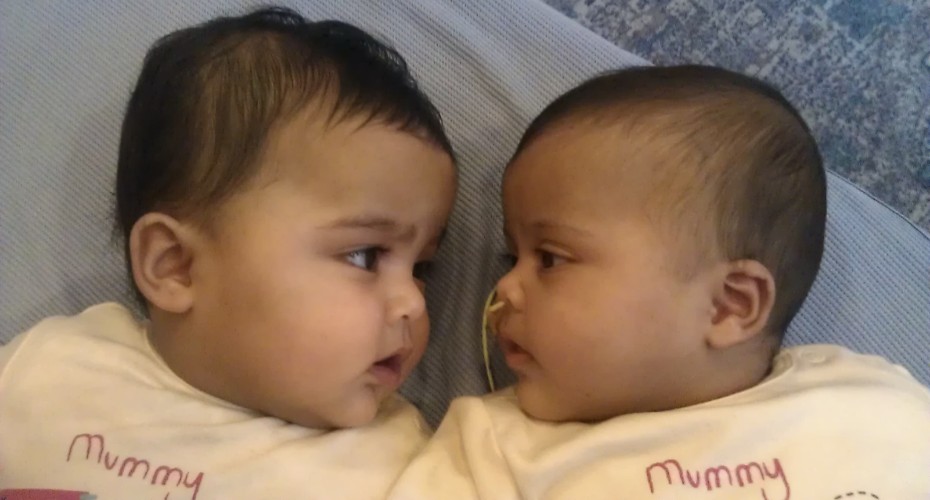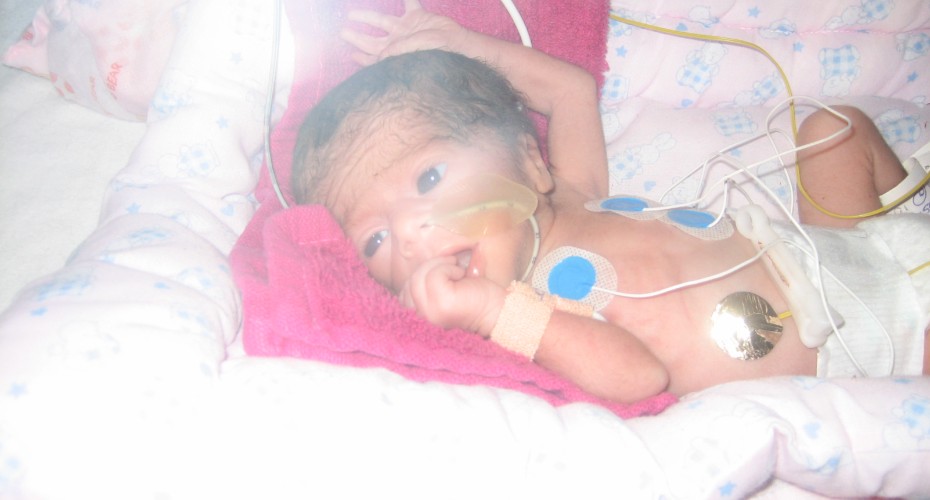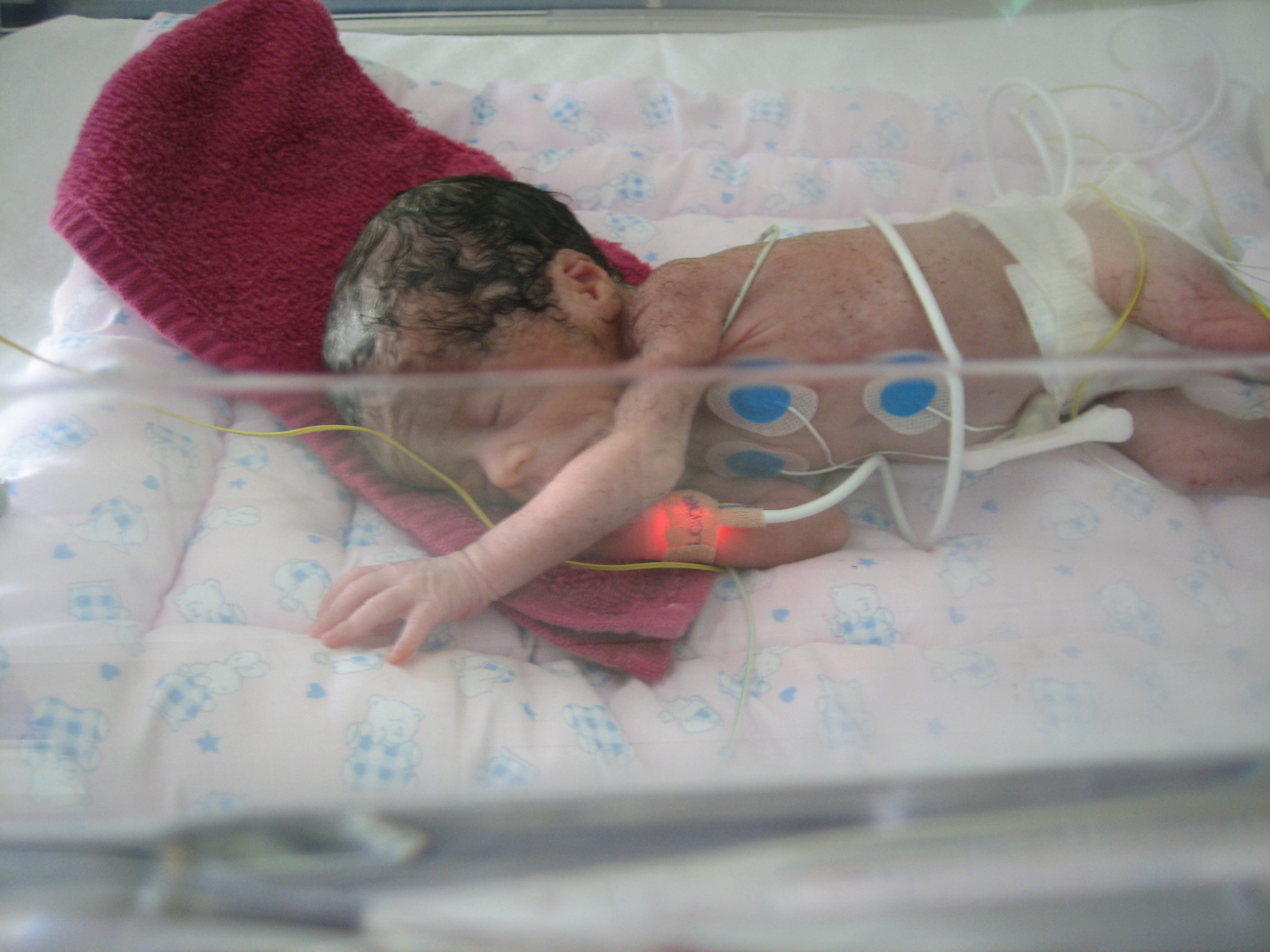Pancreas gene finding gives new insights into human development and aids search for type 1 diabetes cure

The Bashir Twins
Understanding how the human pancreas develops is crucial to allow scientists to make insulin producing–beta cells in the quest to cure Type 1 diabetes. Now, scientists have made a unique and surprising discovery – a gene that is essential for making the pancreas in humans is not present in almost all other animals.
Beta cells within the pancreas produce insulin that regulate blood sugar. Every mammal needs the pancreatic beta-cells to survive. In established Type 1 diabetes there are no, or very few, working beta-cells.
The new finding, published in Nature Genetics, challenges assumptions about how the regulation of development evolves. Until now, scientists had assumed that genes essential for development of key organs and functions were highly conserved through evolution, meaning the genetic pathway remains the same between different species, from fish to humans. However, the gene, called ZNF808, is only found in humans, other apes such as chimpanzees and gorillas, and in some monkeys, such as macaques.
This Wellcome Trust-funded research was carried out by researchers at the University of Exeter Medical School, the University of Cambridge and the University of Helsinki in Finland. The study shows just how different humans can be to other animals often used in research, such as mice, emphasising the importance of studying the human pancreas.
Lead author Dr Elisa De Franco, of the University of Exeter Medical School, said: “Our finding is really surprising – this is the only example we know of where a gene that is fundamental to the development of an organ in humans and primates is not present in other animals. You’d expect a gene only found in primates to regulate a feature that is specific to primates, such as brain size, but it is not the case for this gene, which instead is involved in development of an organ shared by all vertebrates! We think this shows that there must have been an evolutionary shift in higher primates to serve a purpose.”
Senior author Professor Andrew Hattersley, of the University of Exeter Medical School, said: “One hypothesis that we are exploring is that the evolutionary benefit is to the pancreas in the fetus. Human babies are born through the pelvis, so they cannot stay in the uterus for a longtime as they would grow too large for birth. Instead to cope with being born early and needing to survive without continual feeding they need to be born with more fat than any other animal. This fat is laid down when the fetus’ pancreas produces more insulin. Our research has shown that human fetuses have more insulin-related growth than other animals.
Dr Nick Owens, of the University of Exeter Medical School, remarked “This research really emphasises the importance of studying the human pancreas in order to understand and find new treatments for diabetes. Animal research is important, but it can only tell us so much. We know there are fundamental differences between humans and other animals, such as mice which are often the subject of research in this field. The human pancreas is different in how it looks, works and develops. Our genetic finding could help us understand why that’s the case.”
ZNF808 belongs to a family of recently evolved proteins which bind and ‘switch off’ specific regions of the DNA which have also developed recently in evolutionary terms. These DNA regions were among the regions considered “junk” DNA with no meaningful purpose for decades, but new technology have recently allowed us to discover their functions. Our findings confirm that these regions of our DNA are playing important roles during human development.
Dr Michael Imbeault, from the University of Cambridge, said “These findings show that genes like ZNF808, even if relatively ‘recent’ in evolution, can have a crucial role in human development. ZNF808 is a member of the largest, but also least studied family of proteins that regulate our genome. There are hundreds of genes like ZNF808 in our DNA, many primate or even human specific, and our results demonstrate how these can be key players in human health.”.
The identification of ZNF808 as being involved in human pancreas development occurred after researchers at the University of Exeter examined genetic samples from patients recruited across the world who were born without a pancreas and found that they all had genetic changes resulting in loss of ZNF808. They then teamed up with colleagues at the University of Cambridge and Helsinki University to study the effect of ZNF808 loss using stem cells in the lab. The results showed that ZNF808 plays an important function early during human development when cells need to ‘decide’ whether to become pancreas or liver.
Among those who shared their genetic samples was Tania Bashir, aged 12, from Luton. Her father Imran Bashir welcomed the Exeter team’s progress. “Having an answer to why this happened is important. We’ve always wanted to know – now we do. The next important step is to understand what this means to the future of science. My dream is that one day, scientists will be able to genetically modify a stem cell and grow a human pancreas, and implant that into Tania, and potentially cure her. I don’t know if that will ever be possible, but I do know that this understanding is a crucial step forward.”
Professor Timo Otonkoski from University of Helsinki remarked “The input of people born without a pancreas was fundamental to this discovery. Nobody would have ever thought that ZNF808 played a role in pancreatic development if we hadn’t found the changes in this gene in these patients. The ultimate goal of our research is for this knowledge to be translated into being able to manipulate stem cells to produce beta cells that can produce insulin in the laboratory. That could be the key to curing type 1 diabetes. Our finding is a significant step in understanding what makes the human pancreas unique, which could help progress this area.”
The research was supported by the Wellcome Trust, Diabetes UK, and by the Exeter NIHR Biomedical Research Centre. The paper is entitled ‘Primate-specific ZNF808 is essential for pancreatic development in humans’ and is published in Nature Genetics.
Tania’s story
Tania Bashir, Twin 2, weighed just 1.1kg when she was born, via emergency caesarean section, five weeks premature, without a pancreas.
Her mother Saiqa said: “From week 20 onwards the weekly scans were stressful. We were told there was a high chance that the smaller twin wouldn’t make it, so we kept the fact we had a twin a secret from friends, family and even her other three siblings.”


Tania’s father Imran, a chartered hardware engineer in Luton, recalled: “Tania weighed about as much as a bag of sugar; you could quite easily fit her in the palm of your hand They immediately realised she had neonatal diabetes, but she was also not growing or gaining weight. It took eight weeks of investigations, tests and scans to figure out she had no pancreas. Our lives have never been the same since.”
As well as producing no insulin to control her blood sugar, Tania, now 12, does not produce the enzymes that break down fats, proteins and carbohydrates into smaller molecules such as triglycerides, amino acids, and sugars so they can pass through the intestine into the bloodstream. Today, with the support of her parents, she lives a relatively normal life, despite still needing a special liquid feed via a tube at night and permanently using an insulin pump. But her dad recalls the dark days of fear and uncertainty when she was small.


“First, we were told she wouldn’t survive till birth, then that she wouldn’t survive the next few weeks I remember consciously thinking that I didn’t want to get too attached, because one of us would have to be strong when she died. In the end, we stopped asking. You normally look to the medical professionals for answers, but because the condition was so rare, there just is not the experience in the UK or across the world. We were learning along with the medical professionals, pushing each other to find better solutions for Tania. We are really lucky to have a fantastic team at the Luton and Dunstable hospital.”
Imran found a small network of families globally via Facebook, which provided some shared experience. When Tania was six months old, the family was connected to the research team at the University of Exeter, who specialise in genetic causes of diabetes. They visited the lab and Imran said: “I remember thinking, ‘I like what they’re trying to do here – we could get an answer.”
A decade later, through sequencing all the genes in Tania’s DNA (a technique called whole exome sequencing) the Exeter team has identified a gene which is crucial to the development of the human pancreas and is only present in humans and some monkeys, but not in other mammals. Tania’s genetic sample was one of just 13 of children born without a pancreas to enable this discovery.
Imran welcomed the progress. “Having an answer is important. It draws a line under the question of ‘why’, but the journey is far from over. Unlike people with type 1 diabetes, Tania’s immune system didn’t attack her pancreas – so a pancreas could function in her body. I believe that it might be possible to use this research to modify stem cells and grow a pancreas using Tania’s own cells, which could be implanted into her. I know it sounds like science fiction, but 40 years ago, there was no such thing as the internet. Now we can share moments instantly across the world. There’s some amazing scientific progress going on in the world, and the work done by Exeter has brought us one step closer to making my dream possible.”
Dr Elisa de Franco, of the University of Exeter Medical School, said: “Our findings really show the importance of studying the DNA of people with rare diseases to understand how organs develop and function. We are immensely grateful to people like Tania and her family, without them none of this would be possible.”



